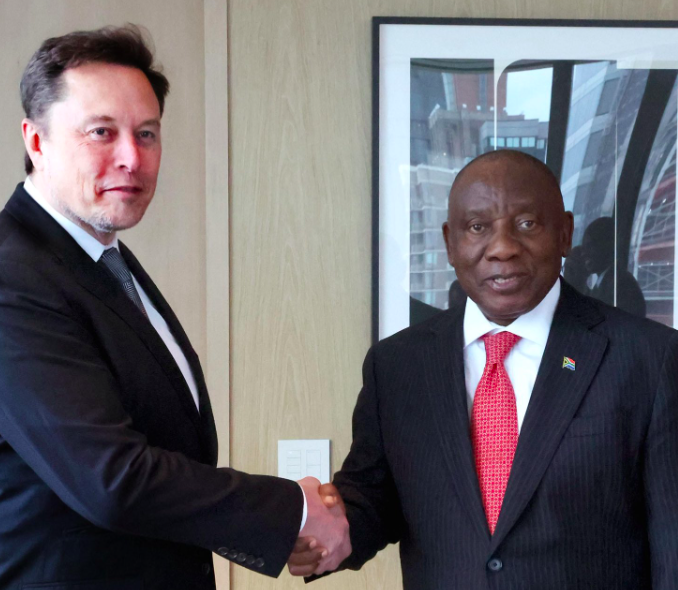Cape Town – President Cyril Ramaphosa has made it clear that South Africa will not change its laws to accommodate billionaire Elon Musk’s Starlink, despite growing calls to ease the country’s stringent empowerment regulations for foreign tech firms.
Addressing questions in the National Council of Provinces (NCOP) on Wednesday, Ramaphosa responded to concerns raised by both the Economic Freedom Fighters (EFF) and the Democratic Alliance (DA) about the future of Starlink — the satellite internet provider operated by Musk’s SpaceX — in South Africa.
The EFF accused the government of using Broad-Based Black Economic Empowerment (B-BBEE) policies to benefit politically connected individuals, while questioning whether Starlink would be forced to comply with South African laws.
The DA, on the other hand, asked whether the president would support such investments without requiring businesses to cede 30% of their ownership to local entities.
In response, Ramaphosa reaffirmed government’s commitment to the Constitution and legal frameworks.
President Cyril Ramaphosa addresses reports about the potential launch of Starlink in South Africa. pic.twitter.com/k1bn41lJGH
— MDN NEWS (@MDNnewss) May 27, 2025
“We will never take any measures or any acts that are going to militate against our Constitution or violate the laws of our country. We will follow the law as much as we possibly can; do not fear that we will violate the law,” he said, according to Times Live.
His comments follow recent developments in the ICT sector, notably a new policy directive issued by Communications and Digital Technologies Minister Solly Malatsi.
The directive introduces the concept of “equity equivalence”, allowing foreign companies to invest in the local economy instead of transferring ownership shares to meet B-BBEE requirements.
As reported by EWN, Ramaphosa defended the policy shift, saying it is legally sound and not designed to benefit any specific company — including Starlink.
Positive responses
“If you’re not able to have joint ownership, we want equity equivalence. That will help to address the injustices of the past,” the report quoted the president as saying.
The president also noted that the new approach is already attracting positive responses from international investors, many of whom are committing further capital to support economic transformation in South Africa.
The new regulations may pave the way for companies like Starlink to operate locally without surrendering a 30% stake, but they still require meaningful local investment to ensure compliance and contribute to national development goals.
While Starlink has yet to secure a licence in South Africa, Ramaphosa’s assurances signal that the government remains open to foreign investment — as long as it aligns with the country’s constitutional values and empowerment objectives.
Follow African Insider on Facebook, X and Instagram
Picture: X/@PresidencyZA
For more African news, visit Africaninsider.com
Compiled by Betha Madhomu


